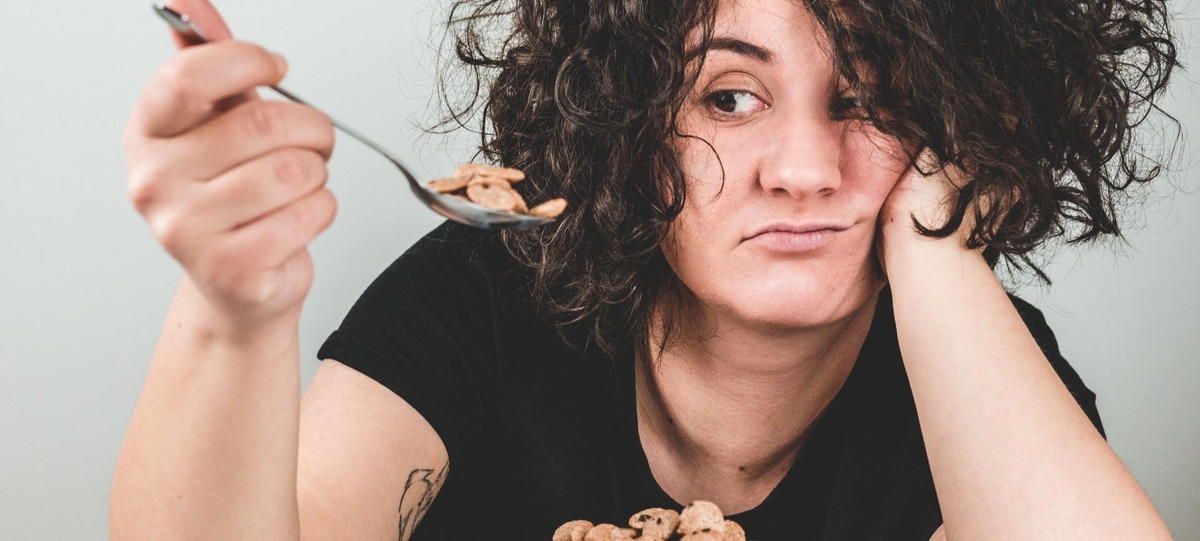Are you emotionally eating/drinking and gaining weight during coronavirus?
• In a poll of more than 1,000 U.S. readers of WebMD, nearly half of the women and almost one-quarter of the men said they’d gained weight “due to COVID restrictions.” A separate poll of 900 international readers found more than half of men and about a third of women reporting weight gain.
• 70% in the U.S. and 35% internationally cited “stress eating” as a cause of their weight gain.
• Excessive drinking and resulting weight gain has also become a problem with sales of alcoholic beverages having gone up up 55% in the early days of the lockdown.
Rewarding yourself with your favorite food or alcoholic beverage to celebrate an event is a fine as long as you are also hungry. But if you opt for a scoop of ice cream, a slice of pizza or two margaritas to calm your anxiety, stress, loneliness, or boredom- you'll find yourself glued to a detrimental cycle that keeps you from figuring out the root causes of the anxiety.
Consuming junk food and cocktails may feel better right away, but emotional hunger cannot be satisfied with food, as the emotions that caused your emotional eating are still not resolved… and the devoured calories can make you feel even worse and cause weight gain.
It is a primary urge to comfort yourself when feeling distressed, so in a way, emotional eating is working for you in the time you are panicking. But it won't identify and solve the problems that brought on the troubled feelings in the first place.

Don’t be ashamed! Many people are going through this issue right now since it’s very comforting to stress eat and drink.
What you can do to stop emotional eating/drinking during coronavirus:
1, Realize emotional hunger and physical hunger are not the same thing, rather there is a huge difference. It might sound tricky but it's not unusual to mistake emotional hunger for physical hunger when stress kicks in. You can never break the vicious cycle of emotional eating if you don't know how to differentiate physical hunger from emotional hunger.
Physical hunger comes on slowly and stops when you're full. Emotional hunger comes on out of no-where and it’s possible to never feel satisfied with even a full stomach. Feeding yourself to satisfy physical hunger doesn't make you regret the calories you consume. But satisfying emotional hunger with food only makes you feel helpless, depressed, and ashamed.
2) Find alternatives to honor your feelings and avoid emotional eating and drinking. To fight comfort eating and drinking, you need to find substitutes for your emotional deprivation that don't involve food. It can be anything that feels emotionally fulfilling, such as calling a friend, writing in a journal, or going in your car and letting out a frustrated scream so the kids don’t hear!

3) Develop or get back to healthy lifestyle habits and work on yourself
Especially during this stressful period, it can help to make some healthy positive changes in your lifestyle.
Physical activity is a game-changer and works as a stress reducer. Meditation can help you relax and compose your thoughts. Recharge your battery by getting 8 hours of sleep. Safely meet with your friends and family to bring positive energy in your life and protect you from the negative energy of stress.
4) Stop and think before emotional eating
Emotional eating is an automatic mechanism and a mindless effort to win over stess. Before even realizing it, you can eat way beyond natural satiety in an attempt to soothe anxiety or depression.
Next time before you eat, take a moment to pause and think about it. Ask yourself to put off cravings and wait for 5 minutes. While you are waiting, check-in with yourself and observe how you are feeling. This trick will help you help you determine whether or not you are truly hungry.
5) Focus on intuitive eating NOT dieting, which can actually make bingeing worse.
Adjust your living and work spaces. Don’t work in the kitchen, Don’t eat or work in bed if possible.
Focus on easy meals. Even though we’re not going out, this new lifestyle can feel exhausting. Ask all family members to pitch in with food prep and cleanup.
Step outside and focus on joyful movement rather than excessive exercise for weight loss.
Get some help. If you don’t feel like you can get things under control on your own, even a single telemedicine consult with a dietitian or counselor can help. Every approach needs to be individualized and can make someone more likely to curb emotional eating/drinking.
Luckily, we are currently accepting new patients for telehealth counseling and nutrition coaching. We see people of all shapes and sizes, and use a non-diet approach that helps you to quickly remove feelings of shame and inaction.
Want to find out more? We offer no obligation FREE 15 minute consults the same day you contact us, because we know it can be hard to make that first appointment. Call today and let us help!










